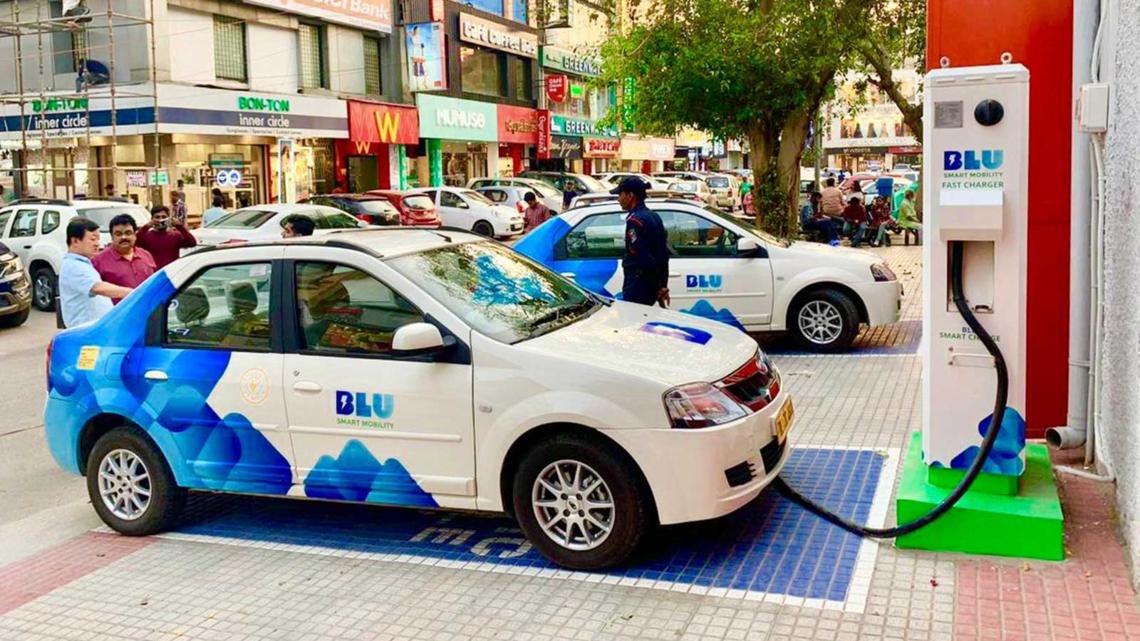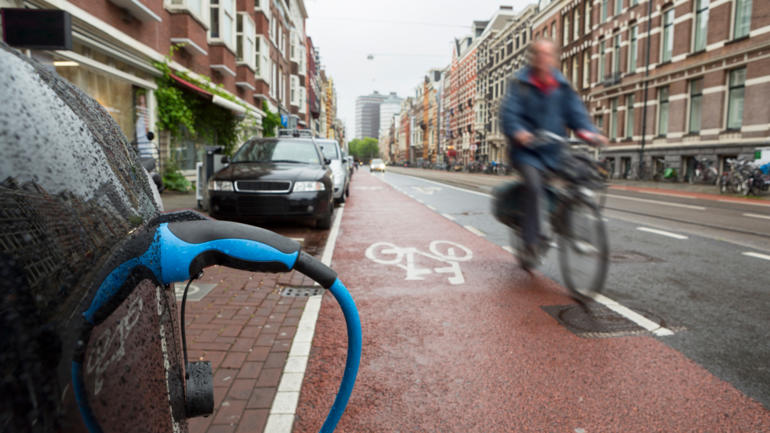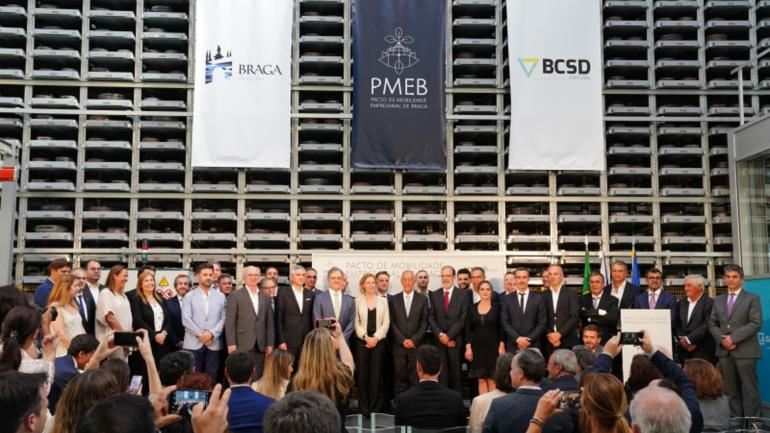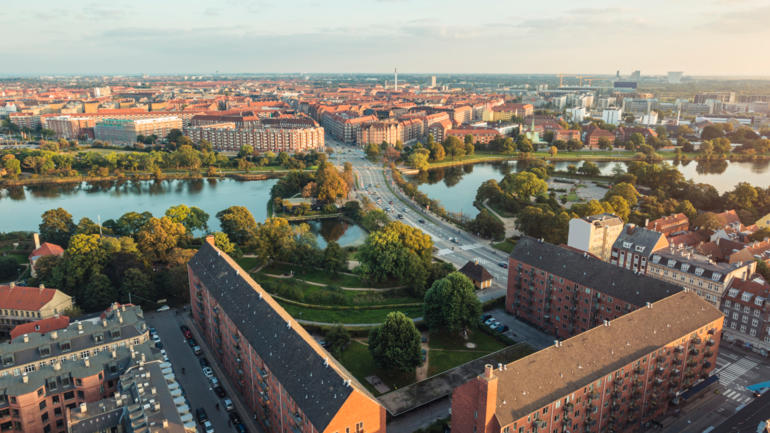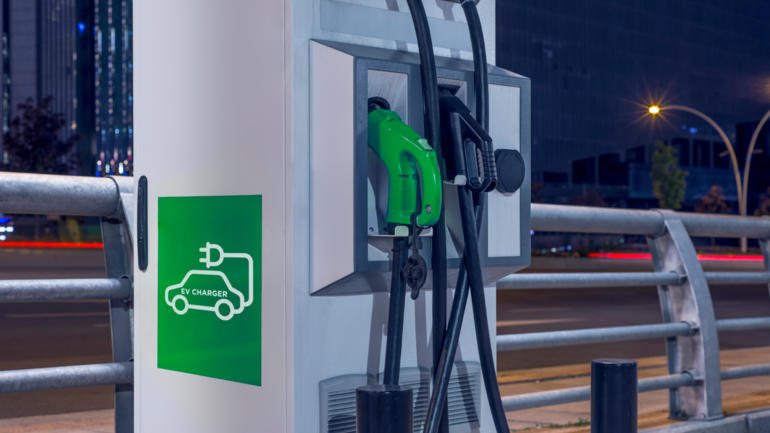New Delhi, 11 July 2019: The World Business Council for Sustainable Development (WBCSD), together with BluSmart, today announced an all-electric ride hailing demonstration service in Delhi.
Beginning in June 2019 at key locations around Delhi, the app-based ride-hailing service aims to demonstrate the practicality and efficiency of switching mass transit users from vehicles with internal combustion engines (ICE) to electric vehicles (EVs) instead.
Launching with 70 cars for ride-hailing, BluSmart Rider (available on Google Play for Android) aims to deploy 500 electric cars in Delhi by April 2020. The demonstration vehicles are being sourced from WBCSD member Mahindra & Mahindra.
It is anticipated that India’s burgeoning youth population will be the early adopters of the new service. Youth in India are increasingly urban, well-connected to the internet and enjoying higher incomes. In their search for convenient, accessible and affordable mobility, they are looking to adopt new mobility options.
While the country is investing in public transport, the demand for easy access to affordable and convenient rides using two, three and four wheelers mean there are increasing numbers of vehicles on the road. In turn, this increases congestion, pollution and CO2 emissions.
The demonstration project represents a massive step towards a low-carbon future and less polluted cities. According to a NITI Aayog report, adopting EVs in India could save about 64% of projected energy demand for road transport, USD $60 billion in diesel and petrol costs and 37% of projected carbon emissions, by 2030.
The high upfront cost and low operating cost of EVs means that people who travel long distances every day will be well-situated to obtain financial benefits from EVs. This makes ride-hailing a primary target for initial adoption in India. A typical passenger car on a ride-hailing platform in a large Indian city can travel anywhere between 200-400 kms every day, making it viable for EV adoption now.
The primary bottlenecks to a complete transition are a lack of public charging infrastructure and losing productive time while a vehicle is charging. Solving these challenges requires innovative business models, effective use of informatics and a policy push in the right direction.
This demonstration service is being conducted under the auspices of the Transforming Urban Mobility (TUM) project at WBCSD. TUM brings cities and businesses together to implement system-level and integrated initiatives that will steer urban mobility systems transformation towards a safer, cleaner, more accessible and more efficient future.
Electrifying mobility is one of the key drivers for cleaner cities. India’s EV value chain, which is collaborating under the REmobility (India) workstream of TUM, is committed to accelerating the transition to EVs. One of the key objectives is to support demonstration projects, help make them successful and learn from and share knowledge of solutions and challenges for others adopting similar approaches.
BluSmart is one of several partnerships under WBCSD’s REmobility project that will test, validate and scale electrification of India’s mobility. The ultimate goal is to help accelerate electrification of mobility for scalable use cases such as ride hailing, employee transport and urban freight / deliveries.
WBCSD is keen to engage businesses and cities in India to work on electrification and other business solutions such as sustainable mobility hubs, sustainable mobility management, data sharing and mobility system mapping that are being developed under TUM.
Interested cities and organizations are encouraged to reach out for more information. Please contact khurana@wbcsd.org.

